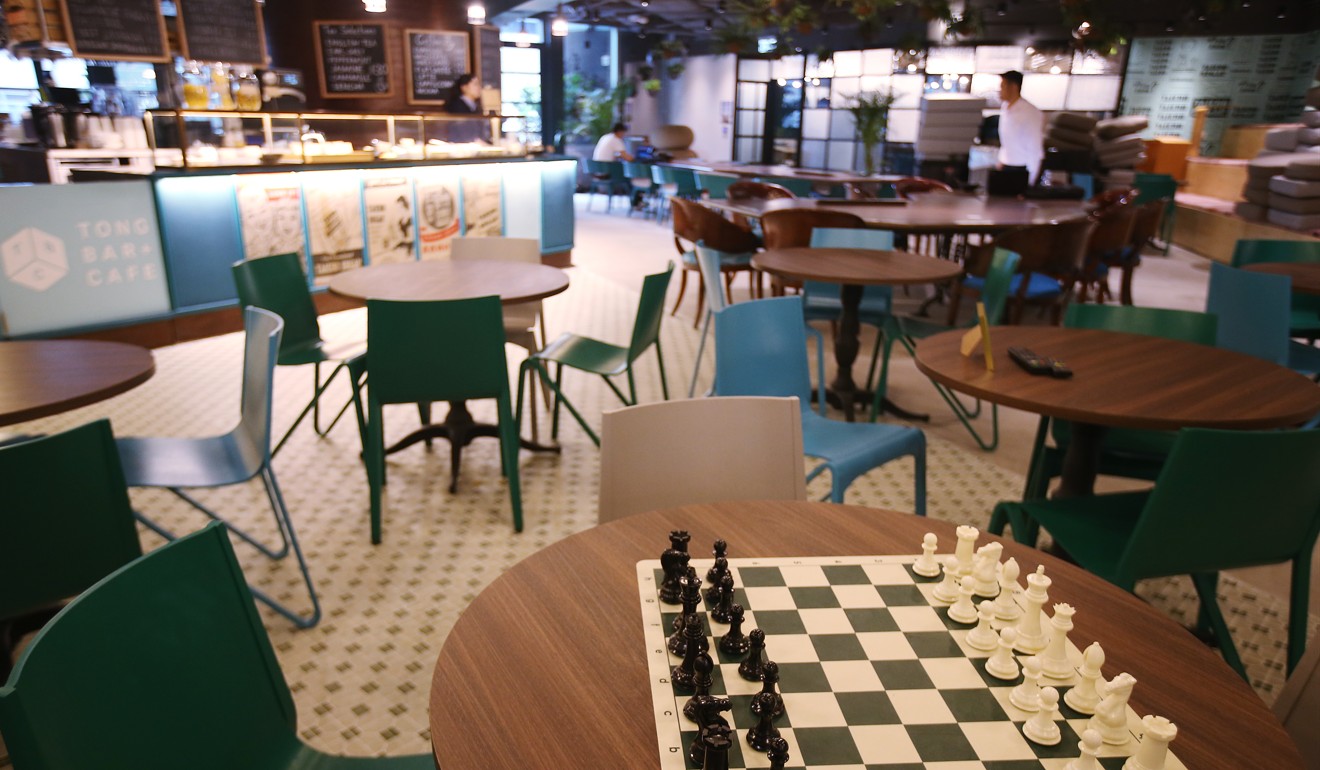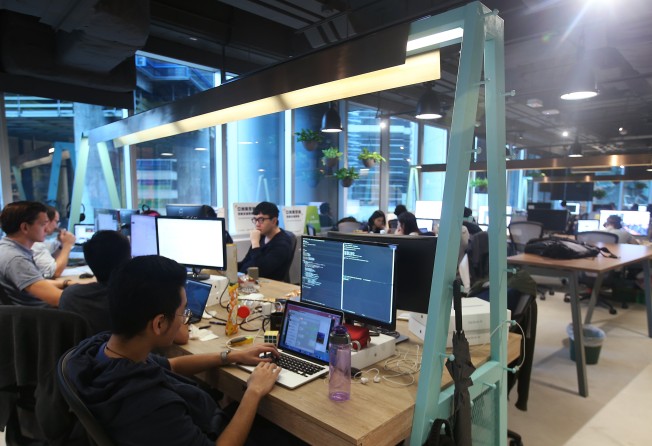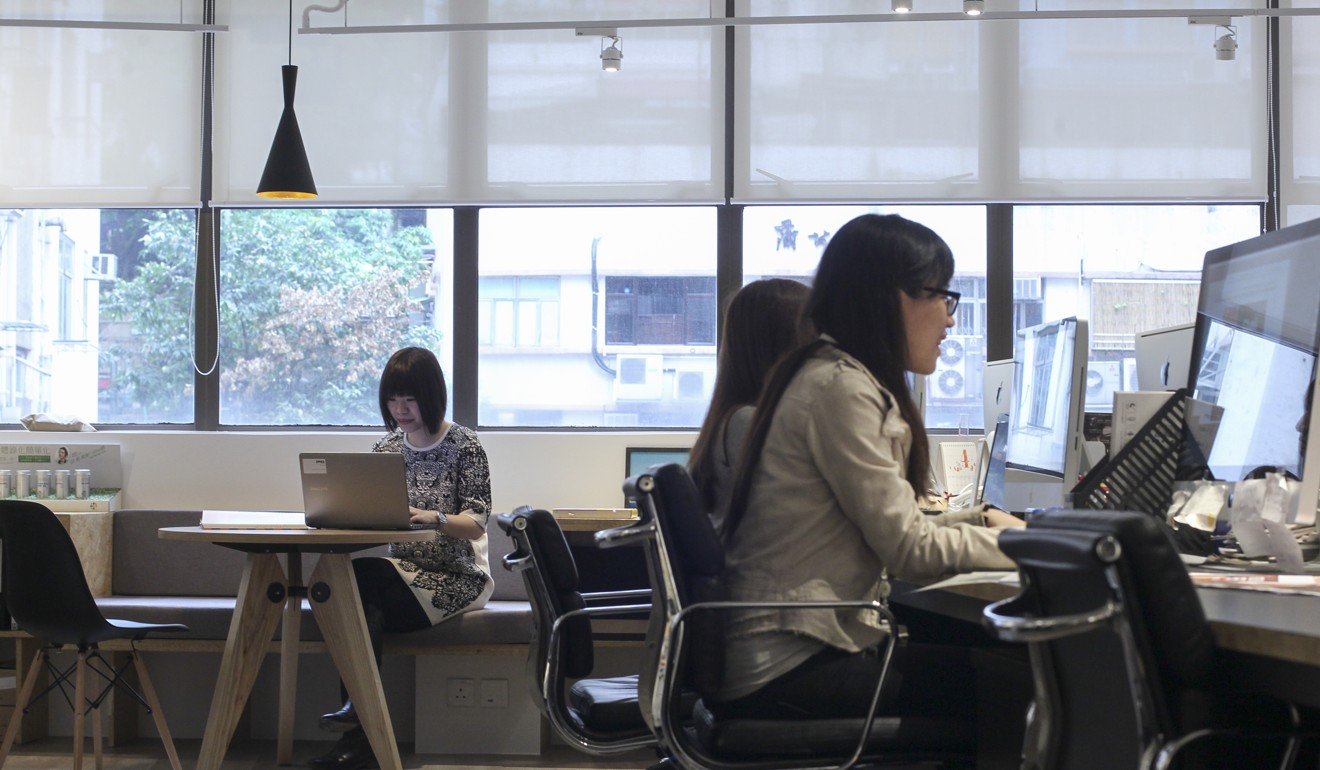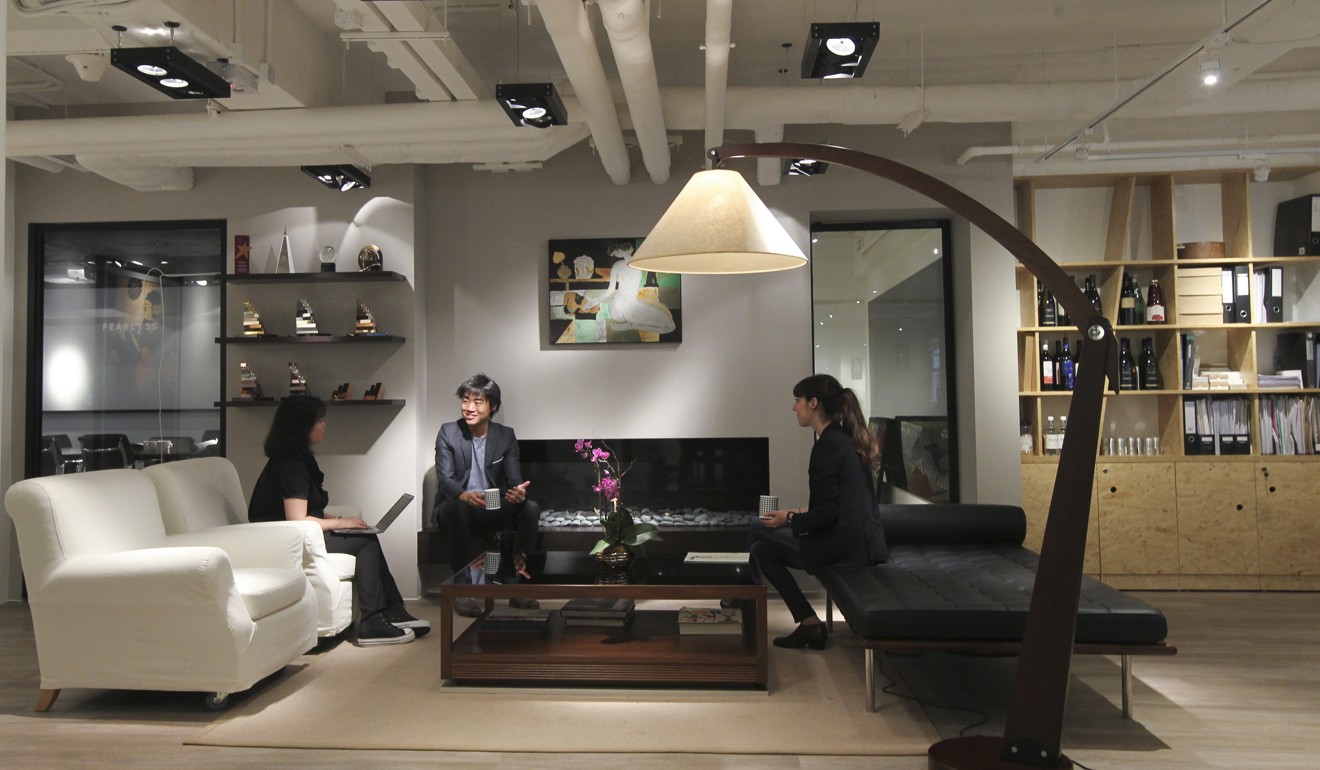
Multinationals shift out of Central Hong Kong to attract talent, and embrace in-office entertainment trend
Soaring office costs are forcing more businesses to eliminate desks and turn their premises into what one leading global facility services firm calls ‘experience arenas’

Multinationals operating in Hong Kong are moving into flexible commercial spaces in its outer suburbs, adapting to the global trend of providing less formal workplaces in cities, especially in such cities with tightening supply and rising costs.
Around the world, firms are increasingly providing in-house entertainment to attract and retain employees, and are moving to larger premises to do so.
In Hong Kong, the market is seeing some major international firms similarly relocating away from Central’s soaring rental prices, and choosing spaces with fewer desks and more creative areas to satisfy workers’ needs and demands.
A good example of this growing trend is GoDaddy, the world’s largest homepage administrator, for instance, operates globally out of a 150,000 square foot global technology centre in Tempe, an inner suburb in the south-western US state of Arizona of around 160,000 people located between the far larger Phoenix and the rest of the state’s East Valley.

Costing US$27 million, the site opened in 2014 and provides employees peddle go-karts, bicycles, outdoor sports courts and on-site chefs. The aim was to attract top talent and give it a competitive advantage, the company said at the time.
Hong Kong employers are similarly moving to the suburbs to retain to entice talent – but there is a lot less space available than to firms abroad like GoDaddy, and companies are having to be highly creative on how they use what they do have.
The trend is for larger clients to consolidate into a single location to save costs,” said Chin. “Those are now usually out of Central
Central, home to gleaming skyscrapers, was world’s most expensive office address for the third consecutive year in the first quarter of 2018, according to a report by global commercial real estate company CBRE.
The average annual rent was listed as US$307 per square foot, 30 per cent more than the US$235 per square foot in London’s West End, in second place.

Over the past two years a rising number of large corporations have relocated to outer areas such as eastern Quarry Bay and Kowloon Bay, and across Victoria Harbour, where rent can be almost half the price, according to Calvin Chin, chief executive officer, Hong Kong, for the Denmark-based ISS Facilities Services Limited, one of the world’s leading facility services companies which offers services including cleaning to security and catering.
“The trend is for larger clients to consolidate into a single location to save costs,” said Chin. “Those are now usually out of Central.”
Officials at ISS say around 40 per cent of their Hong Kong clients have moved from leasing several offices in Central, to one all-encompassing space in locations such as Quarry Bay, East Kowloon or Tung Chung.
In September 2016, one of its global banking clients, for example, moved over 2,800 staff into an entire block in Kowloon, which cost it HK$5 billion (US$637 million).
But square footage is also fast becoming more limited in the most popular suburbs.
“There isn’t space for the entertainment side in Hong Kong, just the actual office space,” said Chin. Multinationals are instead cutting down on desks to make room for activity zones where staff can find ping pong tables or bespoke catering options: saving costs and increasing interaction.

“In Hong Kong there is the added complexity that the square metre price is high,” said Jeff Gravenhorst, ISS’ group CEO.
“It is driving shared desks, because there is no other way for offices to be different,” he said, adding use of such creative co-working spaces will continue to rise, and the trend is now spreading across Asia.
“It is in its infancy, but we see our international customers building it up to attract employees,” said Gravenhorst.
He said local companies remain focused on traditional office space and services, but their mindset is slowly evolving to match that of multinationals.
“Asia is on that progression, but is more at the beginning. As more multinationals and technology companies come over [here] they are more thoughtful [than local companies] about how they attract and retain people,” said Dane Hudson, regional chief executive officer for Asia-Pacific at ISS Facilities Services.
“Asia has one of the highest employment rates: there is a shortage of people. The experience arena is critical for any employer.”